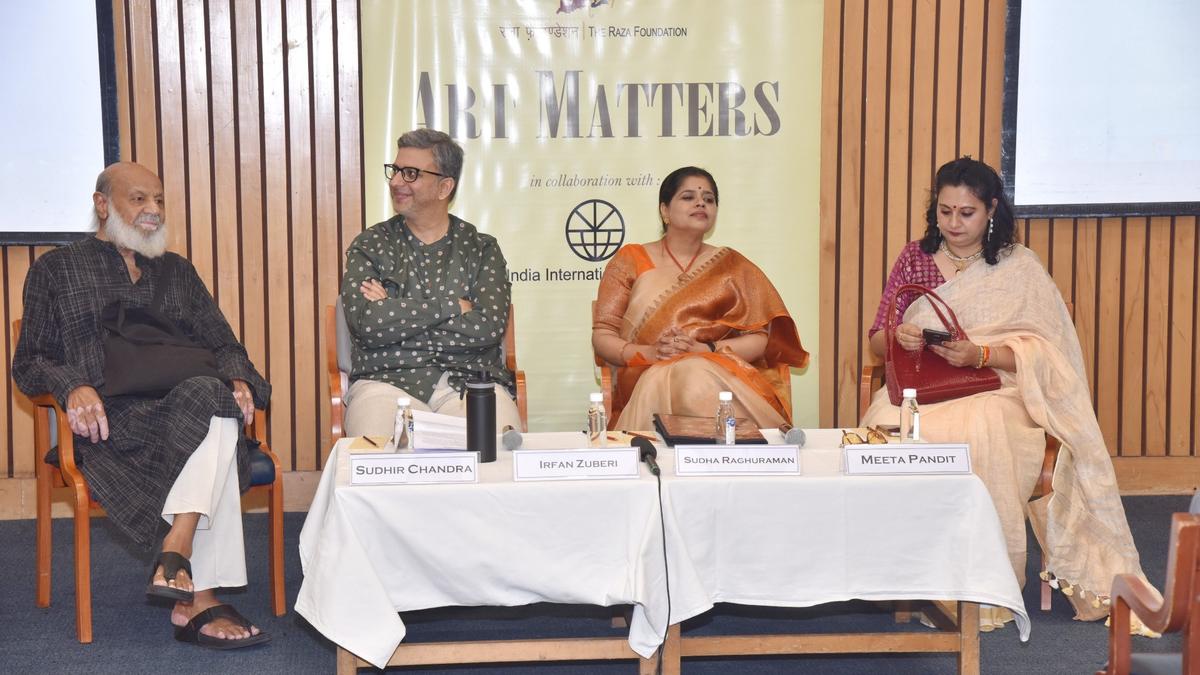
Raza Foundation’s ‘Art Matters’ explored the connect between music and memory
The Hindu
Musical memories help carry forward the art
Is Indian classical music a living recollection of raga rather than a constrained construction of art? What is the connect between memory and music? How much does past define the present in art? These were some of the questions that speakers at Raza Foundation’s ‘Art Matters’ dealt with.
Curator Irfan Zuberi, Carnatic vocalist Sudha Raghuraman, historian and music connoisseur Prof Sudhir Chandra, and Hindustani vocalist Meeta Pandit came up with their own definition of memory and spoke about how it helps unravel the many layers of classical music. Apart from learning, an artiste keeps referring to all that he/she has imbibed, observed and assimilated over the years.
According to Raza Foundation’s Ashok Vajpayi, though Indian classical music has it foundation laid on memory, it is characterised by impermanence. Raga cannot be frozen in time. The earlier generation of performers saw music as a living reality. Hence, they desisted from documenting or recording their work. But in this era, where recordings have become the new normal, classical music has become a coded language, changing its very nature.
Irfan Zuberi referring to the aural-oral tradition of transmission of music highlighted the non-linearity of our music tradition. Music as memory includes rote learning and memory of the music heard. Zuberi shared how certain compositions are remembered for their creators, while some performances of ragas are immortalised by musicians.
Irfan Zuberi referring to the aural-oral tradition of transmission of music highlighted the non-linearity of our music tradition. Music as memory includes rote learning and memory of the music heard. Zuberi shared how certain compositions are remembered for their creators, while some performances of ragas are immortalised by musicians.
Sudha Raghuraman’s talk was deeply personal, reflecting on the memories of the way she was taught and the values she imbibed during her learning phase. She recounted how her guru Ustad Fahimuddin Dagar stressed on the memory of the bhava in a composition rather than the memory of notes.
Prof Sudhir Chandra approached music as a connoisseur rather than a practitioner. His link with music spans through generations. His father, a Sanskrit scholar, wanted to hear a recording of his favourite Ustad Faiyyaz Khan in his last moments rather than shlokas of Bhagavat Gita. In an age when musicians opt for political neutrality, Sudhir spoke of a bolder era when Pt Bhimsen Joshi concluded his concerts with thought-provoking songs such as ‘Soch samajh naadan, iss nagari mein daya dharam nahi’.











